Salisbury named best place to live in the UK 2019
- Published
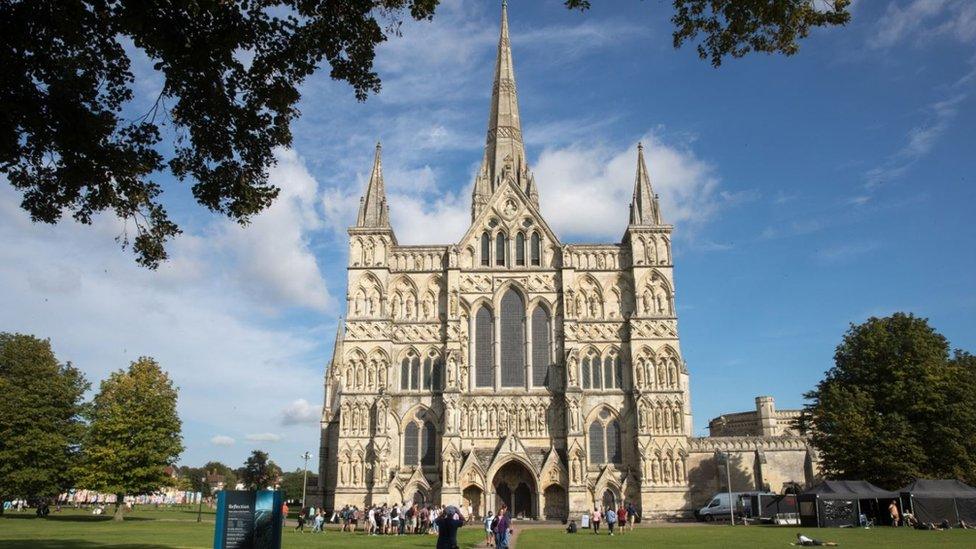
Judges described Salisbury as a "divinely attractive and welcoming place"
The city which was the scene of the Russian nerve agent attack has been named the best place to live in the UK.
Salisbury in Wiltshire was chosen by the Sunday Times Best Places To Live guide because it "remains a divinely attractive and welcoming place".
Former Russian spy Sergei Skripal and his daughter Yulia were exposed to Novichok in the city on 4 March 2018.
Military personnel spent months decontaminating various sites in the city after the incident.
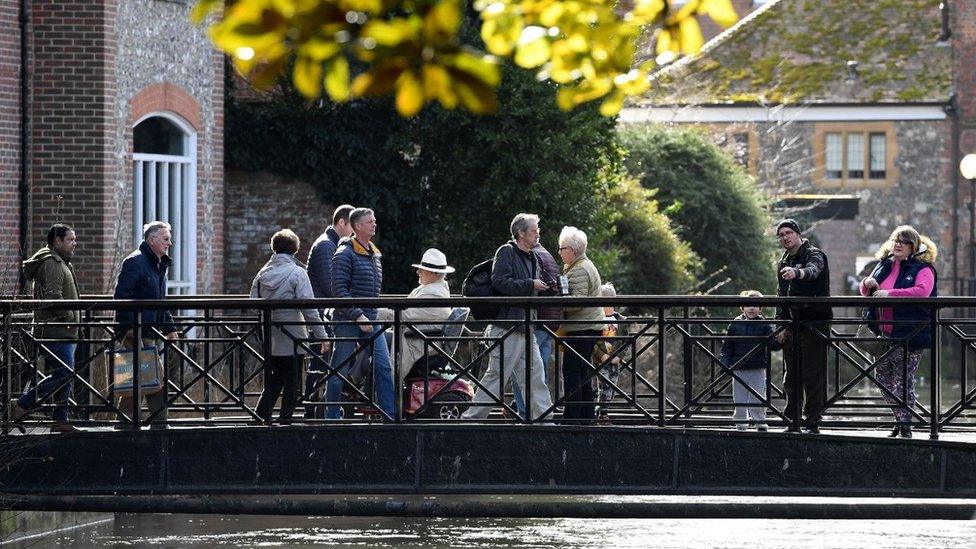
Judges said the city showed "real collective spirit" after the attack in March 2018
Sunday Times home editor Helen Davies said: "Salisbury has shown real collective spirit in dealing with a chemical attack that saw the cathedral city become the centre of world headlines for all the wrong reasons.
"There are still parts of the city where the clean-up continues, but to bounce back and be even stronger is a sure sign of a very special community, which is one of the reasons we have chosen Salisbury as the best place to live in Britain in 2019.
"It remains a divinely attractive and welcoming place. It's handy for coast, countryside and London, has some of the best schools in the southwest, a great market and it's very strong culturally, too."

Best Places To Live - regional winners for 2019
Petworth, West Sussex
Topsham, Devon
Isle of Dogs, London
Bury St Edmunds, Suffolk
Edale, Derbyshire
York, North Yorkshire
Kirkby Lonsdale, Cumbria
Dundee, Dundee
Crickhowell, Powys
Holywood, Co Down
Source: The Sunday Times, external

The list was compiled by a judging panel using their expert knowledge alongside statistics, including house prices, school league tables and air quality levels.
Salisbury MP John Glen tweeted: "Great decision by The Sunday Times - a fantastic city with a resilient spirit, world class tourist attractions, exciting independent shops, top quality schools and infrastructure fit for future generations."
Allow X content?
This article contains content provided by X. We ask for your permission before anything is loaded, as they may be using cookies and other technologies. You may want to read X’s cookie policy, external and privacy policy, external before accepting. To view this content choose ‘accept and continue’.

Dawn Sturgess, 44, died in July after coming into contact with a perfume bottle believed to have been used in the attack on the Skripals and then discarded.
An estimated 600 to 800 specially trained military personnel, including the chemical, biological, radiological and nuclear regiment, were involved in the clean-up.
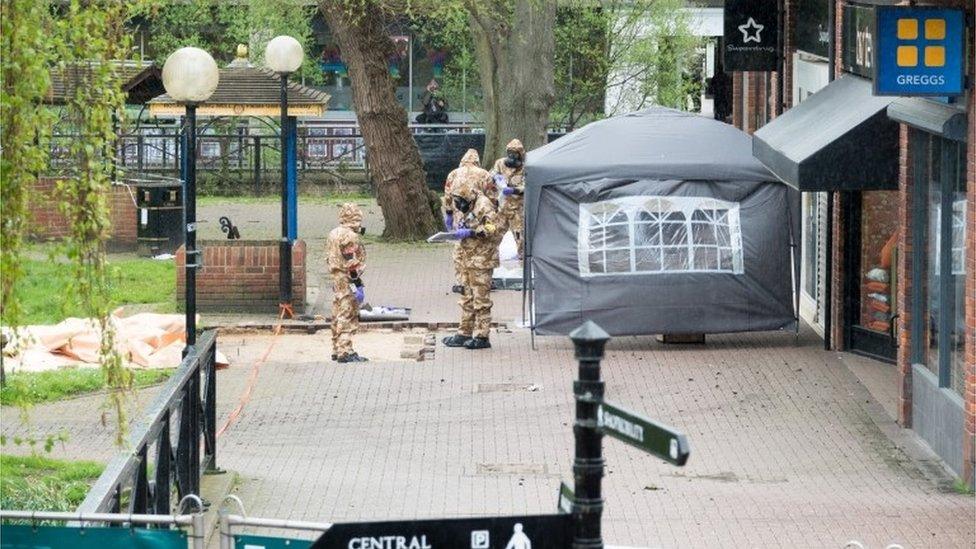
Military personnel spent 13,000 hours on the clean-up following the nerve agent poisoning
Mr Skripal's house and 11 other potentially infected sites were ruled safe on 1 March.
Britain has accused Russia of carrying out the poisonings.
- Published23 January 2019

- Published3 March 2019
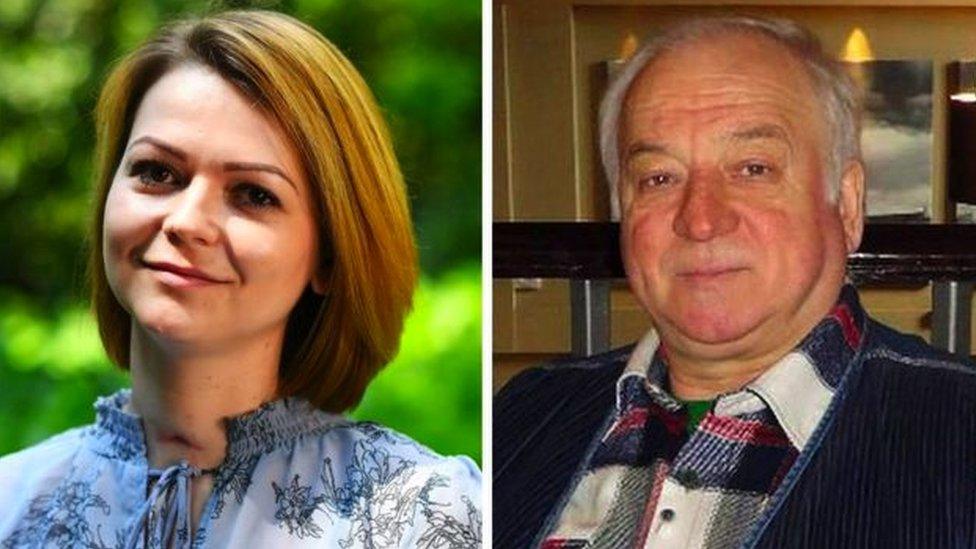
- Published4 March 2019
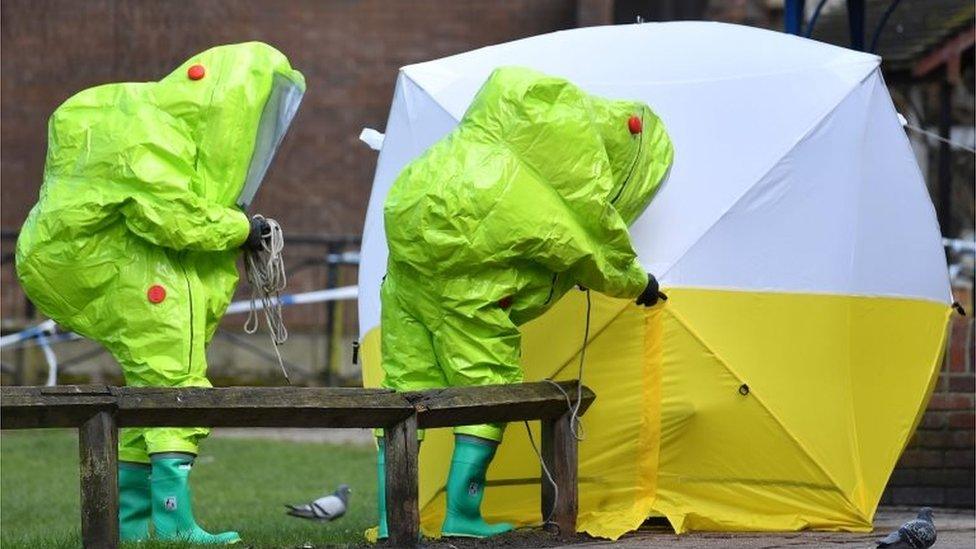
- Published21 October 2014

- Published1 March 2019
